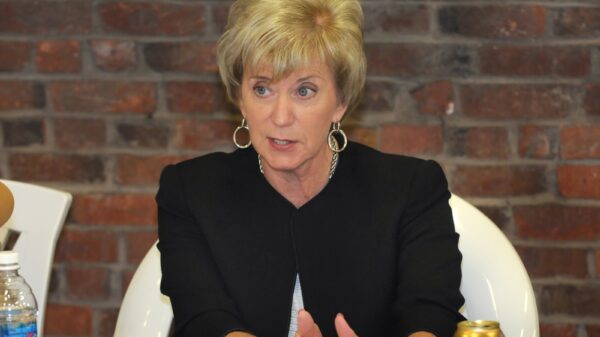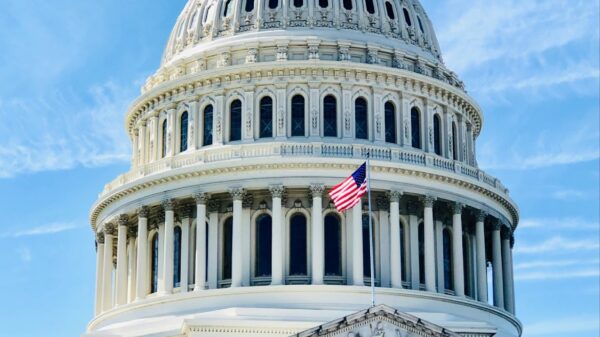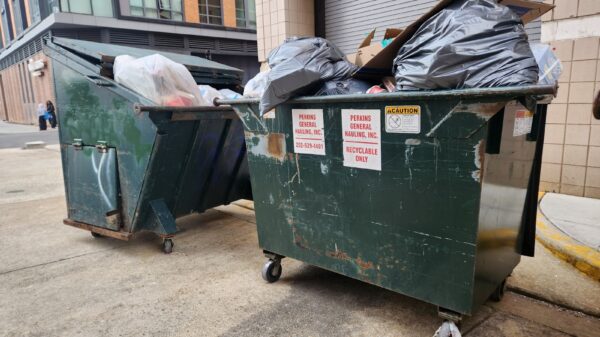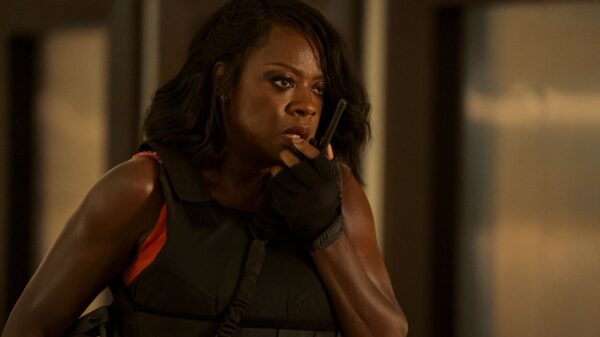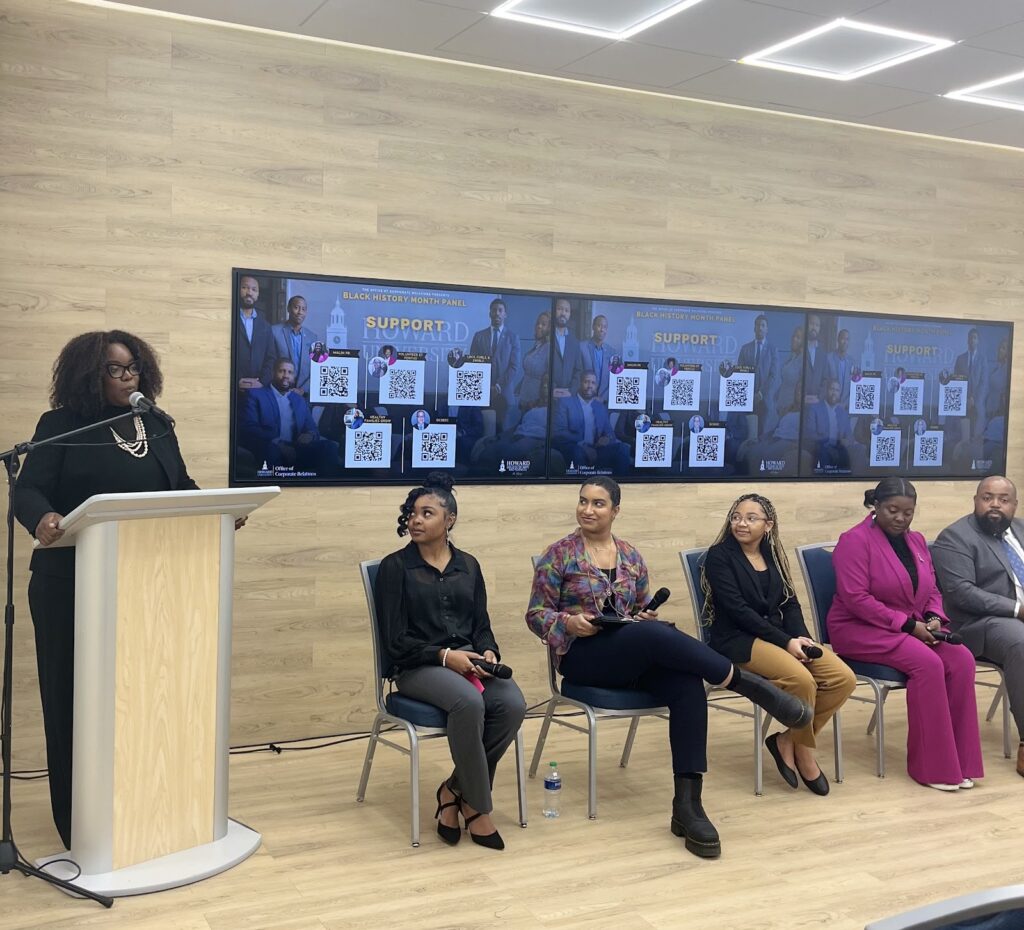
Students, staff and administration gathered in the Blackburn Gallery Lounge to participate in the second annual Black History panel. The panel emphasized the importance of economic and innovative transformation for all in the Black diaspora.
Participants delved into the way activism and entrepreneurship exist as vital components of the Black community’s efforts to promote social change and racial equality. The Feb. 15 gathering was delivered through a partnership between Howard’s Office of Corporate Relations (OCR) and the College of Arts and Sciences (COAS).
Dr. Leelannee Malin, associate dean of community engagement and strategic partnerships in the Office of the Dean of the Chapel, reflected on Howard’s multifaceted opportunities in career development. Malin, who also works as principal and CEO of Malin PR, said she wants to introduce positive examples of entrepreneurship for Howard.
“Entrepreneurship is a pathway to solving those problems in our community as opposed to waiting for somebody else to do it,” Malin said. “It’s about asking the hard questions. How do I take those networks that store power and bring it here for students? How do we leverage those relationships and the funding for the activities that students are trying to do?”
According to a Pew Research Center survey, the gross revenue of fully operational Black businesses increased by 43 percent in 2021. Despite this, Black-owned firms make up only 3 percent of existing U.S. businesses. Additionally, these businesses only accounted for 1 percent of gross revenue from all legitimate companies in the nation that year.
At Howard, many students engaged in entrepreneurship have access to the Small Business Development Center, an administration that provides training and technical assistance to small business owners and aspiring entrepreneurs. Entrepreneurship courses are offered in the School of Business, College of Fine Arts and School of Communications.
Moderated by Carl Brown, executive director of Howard’s Small Business Development Center, panelists relayed their own experiences of how activism and entrepreneurship had personally helped them combat systemic injustices, promote empowerment and inspire future generations.
Charlie Sconiers, a sophomore honors biology and mathematics major from Queens, New York, had much to say about her involvement in the field. As founder and president of Volunteer Et Veritas, a student-run community service organization, Sconiers remarked on her entrepreneurial journey at a young age.
“Activism and grassroots service is a great way to rise to the top for your community,” she said. “As Howard students, activism is instilled in almost everything we do. Being in a leadership position, I aim to empower those in our organization as well as empower others through our initiatives that we work towards.”
Joy Richardson, sophomore political science major from Philadelphia, shared this sentiment. When asked about how entrepreneurial skills intersect with forward progress, Richardson, who serves as co-founder and the first vice president of Volunteer et Veritas, answered readily.
“I believe that once a door is open, it can never be shut, and we as a community have and continue to build on the legacies that were created by others,” Richardson said. “Activism and entrepreneurship as separate entities not only help us to produce goods and services for others, but also allow us to create new experiences, and these experiences help progress the community by giving access to opportunities that might not have otherwise thought to be achievable.”
After the second half of the partnership’s Black History celebration, Malin shared words of wisdom for young Black entrepreneurs starting in the field.
“There are no bad ideas. Whatever that one thing that you’re thinking about doing is, don’t think about doing it. Just try it out,” she said. “There is much success in failure. Sometimes, we think about messing up and doing things wrong, but trying is the key. Eventually, you’ll find what works for you.”
The third annual OCR and COAS Black History panel will take place next year on Feb. 15.
Copy edited by Jalyn Lovelady




